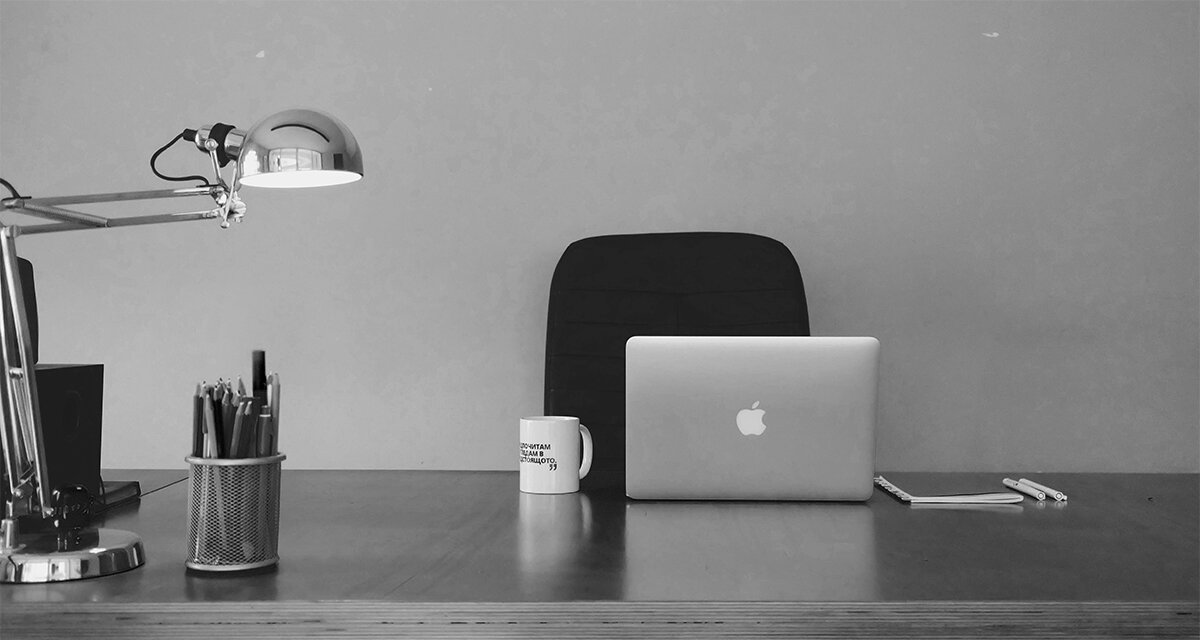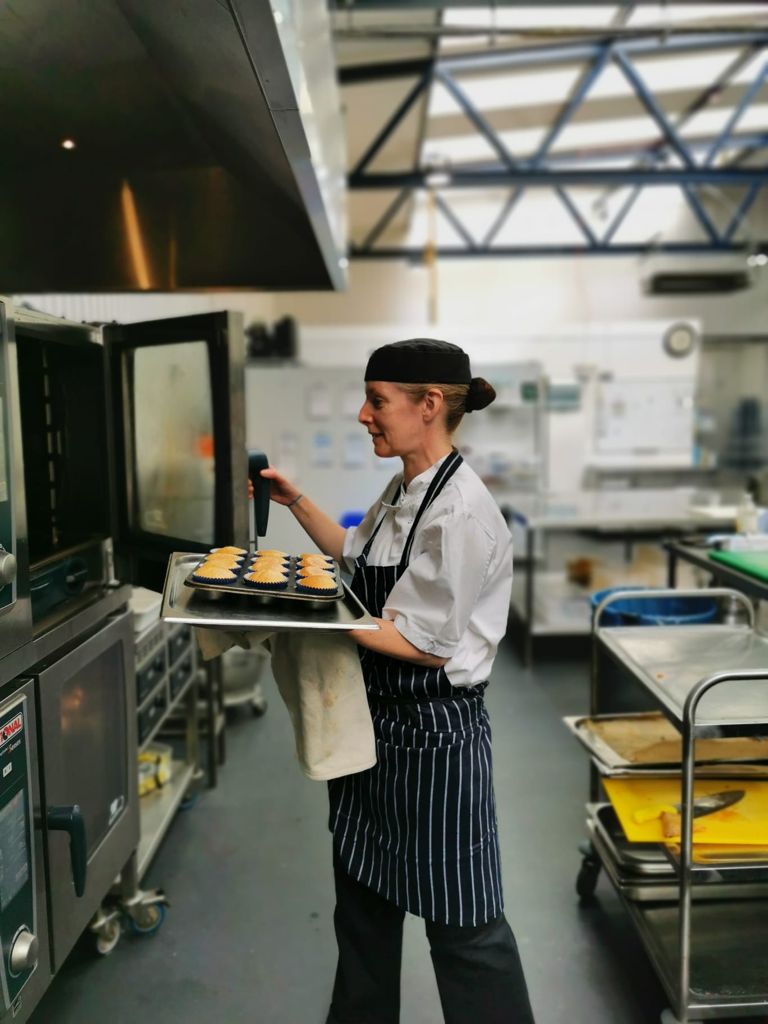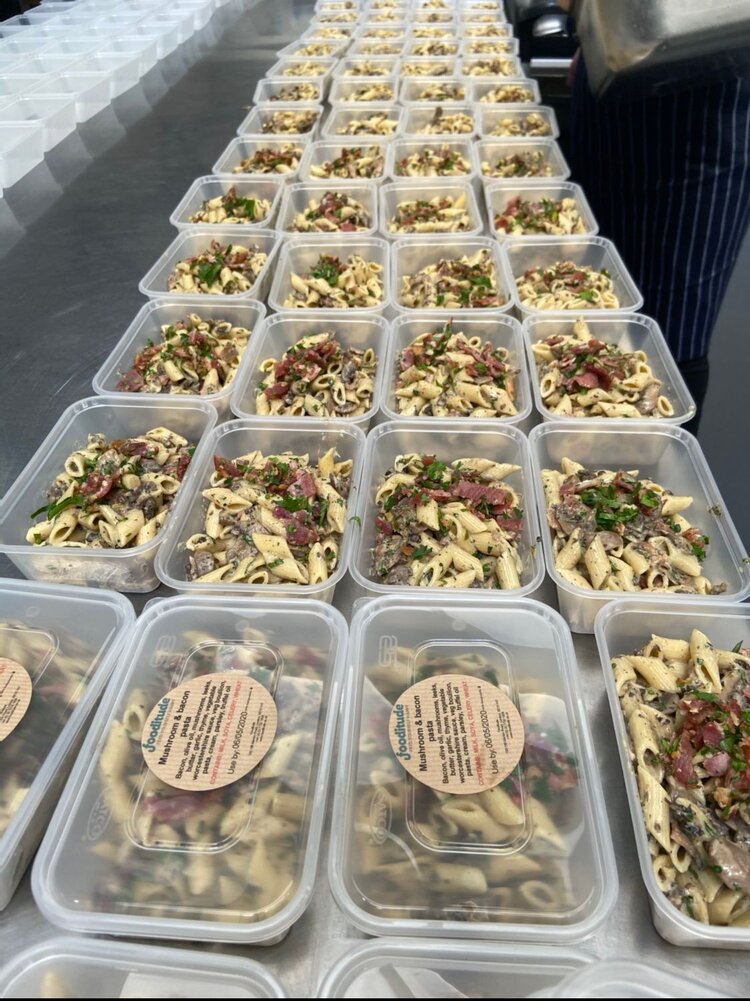On the 23rd March 2020 Boris Johnson announced to the country that people must stay at home and certain businesses must close. Until this point I had only ever worked from home 4 times in my whole career. I saw it as an oddity, something that only happens when there’s a midweek dentist appointment near to home.
The idea of working from home did not thrill me at all. I was still just getting to know my team, having only started working for Fooditude on the 9th March 2020. Being at home meant I wasn’t absorbing the company culture or strengthening relationships – and that kind of sucked.
I had a very cavalier attitude at the start of lockdown, after all, remote working was only temporary, because everything was going to be back to normal in a matter of weeks. Time has since taught me a valuable lesson on making these sorts of half-baked predictions of the future.
As I eased into my new WFH life, I came to terms with my situation and found that I could still get in the zone with my work. Like most people, I was realising the potential of Zoom, Teams and Slack to stay connected with colleagues. Comparing online interaction to face-to-face is a bit like how I feel about frozen yoghurt, it’s nowhere as good as ice cream, but a whole world better than nothing.
Working from home is overwhelmingly ok and there are nice bits about it; the morning commute can be done in under 10 seconds with the right pair of slippers. There’s all that time to enjoy being at home, not forgetting the sheer comfort of not having to deal with the world outside of it. Working from home is a pleasant bubble protecting many of us from the pandemic – but I can’t help feeling that at some point (once it’s safe to do so), this bubble needs to be burst for all our sakes.
Wearing my heart on my sleeve, here’s 3 reasons my relationship with ‘WFH’ is on the rocks:
Feeling disconnected
As I write, I’m sitting at my home desk (dining room table) that’s 35 miles away from Fooditudes ‘Mothership’ kitchen in Bermondsey. Here I’m not having those off-chance chats with a chef about what’s cooking, I can’t connect with my team over lunch and I don’t hear how everyone else is getting on with their day-to-day. The absence of real-world interactions makes me feel removed from the realities of work-life.
Not knowing what people really think
I’m not talking about missing out on all that juicy office gossip (Karen did what?!), my issue here is that remote means that I don’t get the full value of feedback from my colleagues. Words are amazing, who doesn’t love ‘em? But the same message could be read in 101 nuanced ways without the help of tone or body language. Fundamentally, I think most people want to improve what they do – but this becomes increasingly difficult without face-to-face feedback from others to understand what’s working and what isn’t.
Missing random acts of innovation
Joe McKendrick, writing for Forbes, gives this perfect summarisation “Work From Home Fallout: Productivity Up, Innovation Down”. I’m with Joe on this one; innovation just isn’t the same when people work apart. Personally speaking, I miss that sense of energy and shared purpose when co-located with a team. It’s not that working from home kills innovation entirely, but wouldn’t you agree that creative flow happens more naturally when ideas are exchanged off-screen and offline?
In the spirit of full disclosure, I think that working remotely is the best thing going right now considering we’re in a global pandemic. But just like frozen yoghurt (or vegan cheese), remote working is palatable but not preferable. Once the world overcomes the pandemic, I’m jumping straight back on my overcrowded commuter train to my office desk in London – excited for what can be achieved with my colleagues in our recovery from the effects of COVID-19.





